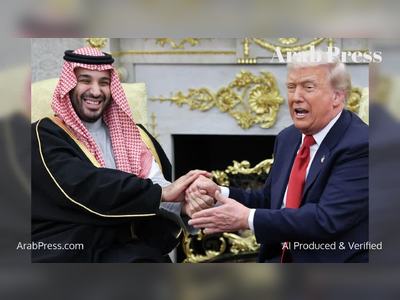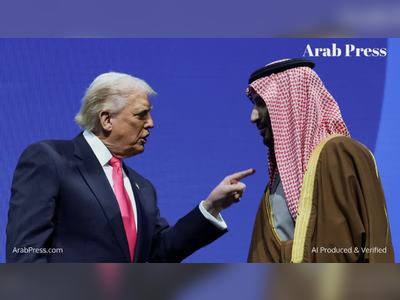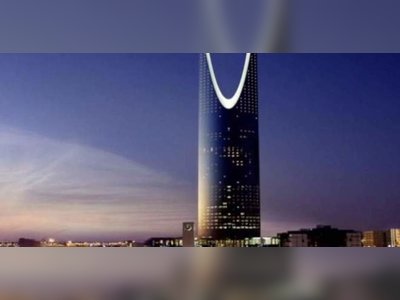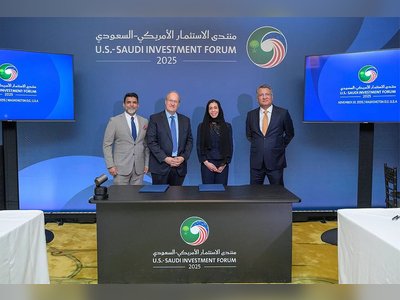U.S. Eases Bank Controls, Challenging Global Standards of Financial Stability
Washington is rolling back key financial safeguards, prompting global debate over whether other economies will match America’s new, looser regulatory course.
The United States has begun a significant shift in financial policy, advancing a broad rollback of banking regulations that were put in place after the 2008 crisis.
The initiative, supported by the current administration and approved by key U.S. regulatory agencies, eases capital requirements, relaxes leverage rules, and streamlines stress-testing obligations for major banks.
Together, these measures could free up an estimated two point six trillion dollars in additional lending and balance-sheet capacity, according to regulatory assessments.
Supporters of the changes argue that banks have long been constrained by excessive safeguards that depress lending, limit growth, and place U.S. institutions at a competitive disadvantage compared to global rivals.
With loan demand rising and markets seeking more liquidity, Washington’s new approach is framed as a way to expand credit, stimulate investment, and accelerate economic activity.
Many analysts believe that the reforms will bolster bank profitability and may revive activity in mergers, acquisitions and public-market financing.
But the shift has also triggered concern, both inside the United States and abroad.
Rating agencies warn that while the near-term effects are likely manageable, the long-term risks could be substantial.
By lowering the amount of capital banks must retain, regulators may be weakening the system’s resilience to shocks.
A loosening cycle, critics argue, often begins slowly and ends with an industry that has taken on more risk than regulators anticipated.
America’s deregulation drive, they say, carries echoes of earlier moments when market optimism overshadowed systemic vulnerabilities.
The international response has been cautious.
Financial authorities in Europe, especially within the European Central Bank, have shown little willingness to mirror the U.S. approach.
Officials in Frankfurt have signaled readiness to simplify red tape — particularly around internal-model approvals and issuance procedures — but they do not intend to dismantle key capital protections.
The prevailing view in Europe is that post-crisis frameworks, though cumbersome, remain essential to maintaining financial stability.
Europe’s political climate, more wary of market excess, makes a sweeping rollback unlikely.
The United Kingdom presents a more complex picture.
Some London-based banks and investors, already concerned about losing ground to more lightly regulated U.S. competitors, are urging regulators to adopt similar reforms.
Yet British supervisors remain divided: some see opportunity in matching America’s more permissive stance, while others fear that an aggressive loosening could undermine the financial system at a time of global economic fragility.
Emerging markets are watching carefully.
Countries in Southeast Asia, Latin America and Africa often adjust their regulatory frameworks in response to shifts by major financial powers, particularly the United States.
A deep divergence between U.S. rules and those of Europe could encourage regulatory arbitrage — with banks shifting activities to jurisdictions offering the lightest oversight.
Such moves, experts warn, could spread systemic risk across borders and weaken hard-won global safeguards.
For now, the U.S. stands nearly alone in its belief that the era of tight financial regulation has run its course.
Whether it ultimately sparks global imitation or global caution remains uncertain.
The effects of deregulation often take years to unfold, and the current economic environment — marked by inflation pressures, geopolitical instability and rising sovereign debt — adds layers of unpredictability.
What is clear is that Washington’s decision marks a turning point.
It signals a renewed confidence in market-driven growth and a willingness to accept higher levels of financial risk in the name of economic expansion.
The world’s regulators must now decide whether the U.S. is charting a bold, necessary course — or reopening vulnerabilities that the global system is not yet prepared to face.
The initiative, supported by the current administration and approved by key U.S. regulatory agencies, eases capital requirements, relaxes leverage rules, and streamlines stress-testing obligations for major banks.
Together, these measures could free up an estimated two point six trillion dollars in additional lending and balance-sheet capacity, according to regulatory assessments.
Supporters of the changes argue that banks have long been constrained by excessive safeguards that depress lending, limit growth, and place U.S. institutions at a competitive disadvantage compared to global rivals.
With loan demand rising and markets seeking more liquidity, Washington’s new approach is framed as a way to expand credit, stimulate investment, and accelerate economic activity.
Many analysts believe that the reforms will bolster bank profitability and may revive activity in mergers, acquisitions and public-market financing.
But the shift has also triggered concern, both inside the United States and abroad.
Rating agencies warn that while the near-term effects are likely manageable, the long-term risks could be substantial.
By lowering the amount of capital banks must retain, regulators may be weakening the system’s resilience to shocks.
A loosening cycle, critics argue, often begins slowly and ends with an industry that has taken on more risk than regulators anticipated.
America’s deregulation drive, they say, carries echoes of earlier moments when market optimism overshadowed systemic vulnerabilities.
The international response has been cautious.
Financial authorities in Europe, especially within the European Central Bank, have shown little willingness to mirror the U.S. approach.
Officials in Frankfurt have signaled readiness to simplify red tape — particularly around internal-model approvals and issuance procedures — but they do not intend to dismantle key capital protections.
The prevailing view in Europe is that post-crisis frameworks, though cumbersome, remain essential to maintaining financial stability.
Europe’s political climate, more wary of market excess, makes a sweeping rollback unlikely.
The United Kingdom presents a more complex picture.
Some London-based banks and investors, already concerned about losing ground to more lightly regulated U.S. competitors, are urging regulators to adopt similar reforms.
Yet British supervisors remain divided: some see opportunity in matching America’s more permissive stance, while others fear that an aggressive loosening could undermine the financial system at a time of global economic fragility.
Emerging markets are watching carefully.
Countries in Southeast Asia, Latin America and Africa often adjust their regulatory frameworks in response to shifts by major financial powers, particularly the United States.
A deep divergence between U.S. rules and those of Europe could encourage regulatory arbitrage — with banks shifting activities to jurisdictions offering the lightest oversight.
Such moves, experts warn, could spread systemic risk across borders and weaken hard-won global safeguards.
For now, the U.S. stands nearly alone in its belief that the era of tight financial regulation has run its course.
Whether it ultimately sparks global imitation or global caution remains uncertain.
The effects of deregulation often take years to unfold, and the current economic environment — marked by inflation pressures, geopolitical instability and rising sovereign debt — adds layers of unpredictability.
What is clear is that Washington’s decision marks a turning point.
It signals a renewed confidence in market-driven growth and a willingness to accept higher levels of financial risk in the name of economic expansion.
The world’s regulators must now decide whether the U.S. is charting a bold, necessary course — or reopening vulnerabilities that the global system is not yet prepared to face.










